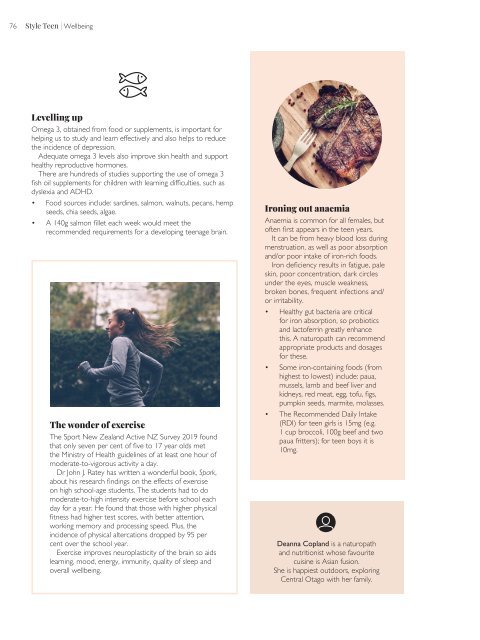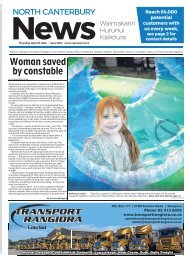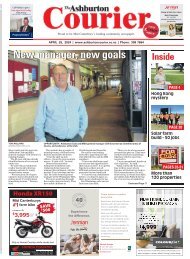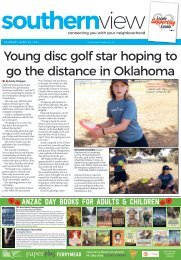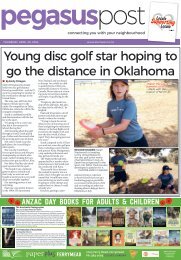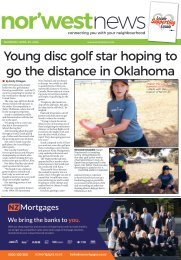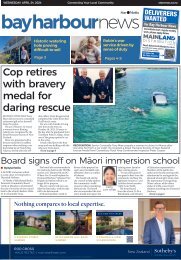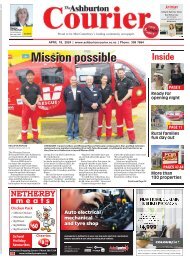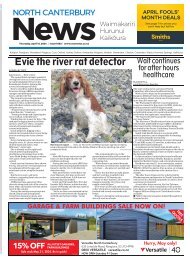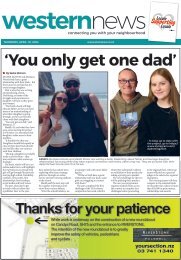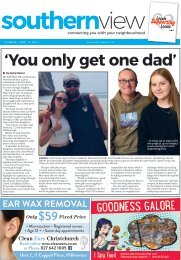Style: December 10, 2021
Create successful ePaper yourself
Turn your PDF publications into a flip-book with our unique Google optimized e-Paper software.
76 <strong>Style</strong> Teen | Wellbeing<br />
Levelling up<br />
Omega 3, obtained from food or supplements, is important for<br />
helping us to study and learn effectively and also helps to reduce<br />
the incidence of depression.<br />
Adequate omega 3 levels also improve skin health and support<br />
healthy reproductive hormones.<br />
There are hundreds of studies supporting the use of omega 3<br />
fish oil supplements for children with learning difficulties, such as<br />
dyslexia and ADHD.<br />
• Food sources include: sardines, salmon, walnuts, pecans, hemp<br />
seeds, chia seeds, algae.<br />
• A 140g salmon fillet each week would meet the<br />
recommended requirements for a developing teenage brain.<br />
The wonder of exercise<br />
The Sport New Zealand Active NZ Survey 2019 found<br />
that only seven per cent of five to 17 year olds met<br />
the Ministry of Health guidelines of at least one hour of<br />
moderate-to-vigorous activity a day.<br />
Dr John J. Ratey has written a wonderful book, Spark,<br />
about his research findings on the effects of exercise<br />
on high school-age students. The students had to do<br />
moderate-to-high intensity exercise before school each<br />
day for a year. He found that those with higher physical<br />
fitness had higher test scores, with better attention,<br />
working memory and processing speed. Plus, the<br />
incidence of physical altercations dropped by 95 per<br />
cent over the school year.<br />
Exercise improves neuroplasticity of the brain so aids<br />
learning, mood, energy, immunity, quality of sleep and<br />
overall wellbeing.<br />
Ironing out anaemia<br />
Anaemia is common for all females, but<br />
often first appears in the teen years.<br />
It can be from heavy blood loss during<br />
menstruation, as well as poor absorption<br />
and/or poor intake of iron-rich foods.<br />
Iron deficiency results in fatigue, pale<br />
skin, poor concentration, dark circles<br />
under the eyes, muscle weakness,<br />
broken bones, frequent infections and/<br />
or irritability.<br />
• Healthy gut bacteria are critical<br />
for iron absorption, so probiotics<br />
and lactoferrin greatly enhance<br />
this. A naturopath can recommend<br />
appropriate products and dosages<br />
for these.<br />
• Some iron-containing foods (from<br />
highest to lowest) include: paua,<br />
mussels, lamb and beef liver and<br />
kidneys, red meat, egg, tofu, figs,<br />
pumpkin seeds, marmite, molasses.<br />
• The Recommended Daily Intake<br />
(RDI) for teen girls is 15mg (e.g.<br />
1 cup broccoli, <strong>10</strong>0g beef and two<br />
paua fritters); for teen boys it is<br />
<strong>10</strong>mg.<br />
Deanna Copland is a naturopath<br />
and nutritionist whose favourite<br />
cuisine is Asian fusion.<br />
She is happiest outdoors, exploring<br />
Central Otago with her family.


